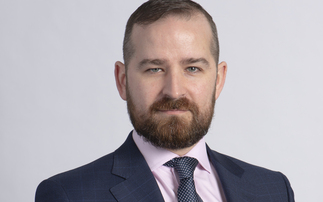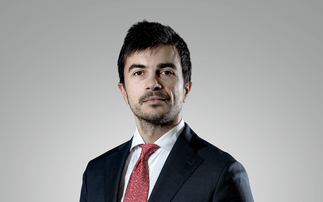Partner Insight: Matthews Asia's Yu Zhang explains how he identifies companies with a strong business model and 'tilts' his portfolio in order to overcome negative macro headwinds
Negative headlines in the business press often impact investor sentiment and can end up driving short-term market performance. Nowhere has this been more prominent than in Asia, which over the past year as it contended with rising geopolitical issues between China and the US and ongoing concerns regarding domestic growth.
Matthews Asia Portfolio Manager Yu Zhang agrees the region has gone through "quite a few different cycles" over the past few years and overall it has been a fairly challenging and volatile two or three years for Asia's equity markets.
But when sentiment becomes an overwhelming driver for the share price in either direction, Zhang argues that in order to counter-act negative macro concerns it is important to choose companies with a strong business model when investing for income.
"We use it [negative sentiment] as an opportunity rather than a reason to avoid specific sectors on the Matthews Asia ex Japan Dividend Fund," explains Zhang. "We aim to identify those companies where we believe the strength of the business model is likely to help them overcome near-term headwinds. If a company can prove it can overcome weak sentiment, the actual earnings delivery is usually much better."
He points to the performance of Asian companies in 2015-2016, when the region struggled in terms of delivering any sort of earnings growth. This was echoed in 2018 as well.
"Last year, we saw an increasing number of external-related risk factors such as geopolitical trade issues, rising interest rates and high energy prices. All of these have been headwinds for Asian equities."
In order to counter-act that, Zhang has chosen to ‘tilt' the portfolio at different points of the cycle in order to manage these challenges over the past year. He explains: "Whilst in 2015-2016 we saw opportunities in dividend growth names (which paid off in 2017 when the top contributors were in cyclical and high growth businesses), 2018 was a very challenging and quick-changing environment and Asian markets were in a very different place.
"As such, at the beginning of 2018 we began to pull back our exposure to cyclical dividend growth companies and reduced quite aggressively our holdings in the IT and financial services sectors. Instead, we added to stable utilities, telecoms and asset-heavy infrastructure businesses. This defensive stance helped pull up performance for the strategy overall in 2018."
Click here to read the full article from Matthews Asia to understand how changing market cycles are impacting the Asian equity universe in 2019













